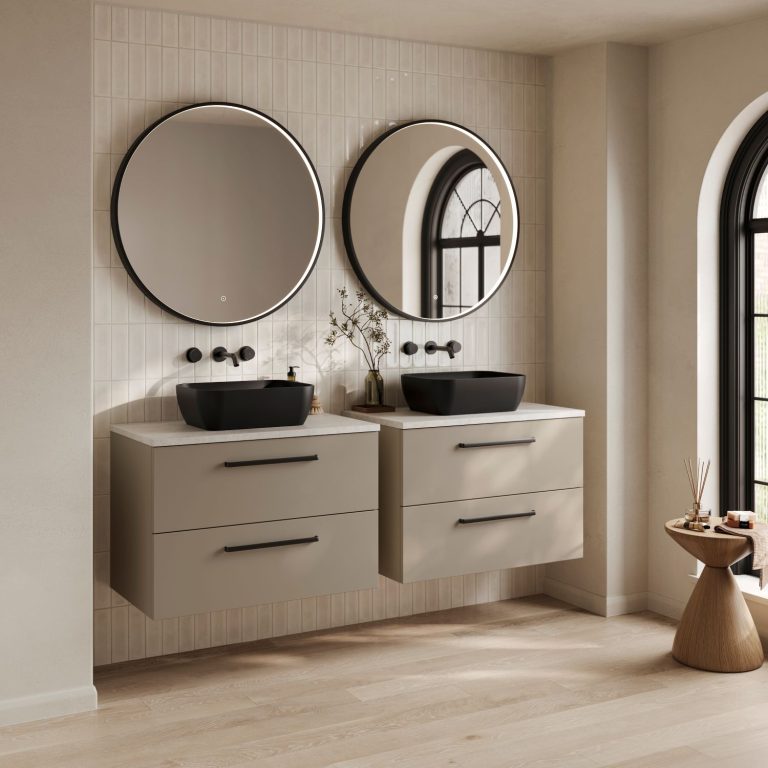“The industry is a lot trickier,” according to new research from bathroom manufacturer Nuielux. The company asked professional bathroom installers for their views on the current market and has shared five expert perspectives on how the sector is shifting.
A key takeaway is that while technology is driving transformation, traditional trade skills remain fundamental. Experts stressed that, although the bathroom market is now fashion-led, plumbing and electrical expertise remain essential.
Installers told Nuielux that the pace of technological innovation and fast-changing trends make upskilling more important than ever. From manufacturers and showroom managers to gas engineers and plumbers, respondents agreed the industry is undergoing significant change.
Among the drivers identified were advances in technology, the influence of design trends, and widening gaps between premium and entry-level products. Together, these insights underline how the focus on both style and innovation is reshaping the skills required of today’s bathroom installers.
Five expert opinions about the changing face of bathroom installation:
- It’s harder than ever to break into the industry
While skills shortages are a well-known issue across the trades, launching a career in plumbing, electrics, or bathroom installation is not getting any easier.
“The industry has got a lot trickier,” said Carl Huckle, a gas engineer and plumber with 20 years in the business. “From when I was growing up and later as an apprentice to my dad, who was also a plumber, there’s a big rift between what I saw him achieve relatively quickly, and what I managed to achieve in the same timeframe. It’s definitely got a lot harder for young people to just come into this industry and make it work.”
As for advice, Carl said, “Start at the bottom and keep working up. If you try to enter in the middle of the market, you’ll find yourself with cash problems, people problems, those kinds of things. You’re better off starting small and keeping yourself working on little jobs to build up money and experience.”
- Technology is driving transformation and upskilling
One challenge that tradespeople of all ages face is the need to keep up with rapidly evolving technology and the accompanying rules and regulations.
“Technology advancements do make it a little bit harder because you need to follow new rules all the time – read a lot, learn new stuff, and be up to date on what we have now, gas engineer Stanley Wojtowicz said.
“Ten years from now, I have no idea where bathrooms will be, because in four or five years, we’ve already seen so much progress. Every year, everything is so different, so much more advanced. It’s hard to predict, but you have to keep on top of it.”
- Word of mouth is still king
Despite the wealth of new digital marketing tools and platforms at tradespeople’s fingertips, the old ways really are the best. Social media and online directories simply can’t replace good old-fashioned recommendations.
In fact, Carl said, “I don’t recommend chasing advertisements or anything like that. Build through word-of-mouth – that’s what gets you more customers. I’m 20 years in, and I don’t advertise at all anymore.”
- Bathroom experts still guide customer decisions
Social media sites offer homeowners a wealth of inspirational pictures. However, experts report that customers continue to seek their advice on what they can achieve and which products they need.
Suzie English, bathroom manufacturing agent and showroom manager, said: “Despite social media, it’s not very often that you get customers come into the showroom and say, ‘I know exactly what I want’. The majority don’t have a clue – whether it’s kitchens or bathrooms – it’s not something that the average person does every day, so you have to guide them. That’s why I offer a one-to-one service to find out what they actually want.”
- Installing is tough but rewarding work
There’s a common misconception that tradespeople have it easy – being self-employed, they decide when they work, what they charge, and what jobs they take. However, the reality is more complex, and building strong relationships with colleagues is even more valuable when you run your own business.
“I’m hoping to retire in the next five years”, Carl said. I don’t want to be doing this forever; it swallows a lot of time, especially when you’re self-employed and you work for yourself.
“It’s not what people think; it takes a lot of dedication to make good money at this game. The only reason I’ll be able to step away is the relationship I’ve built with my business partner. He’s ten years younger than me. He was my apprentice and we’ve worked together over a decade now, and we just keep growing and growing and growing.”
 </
</
